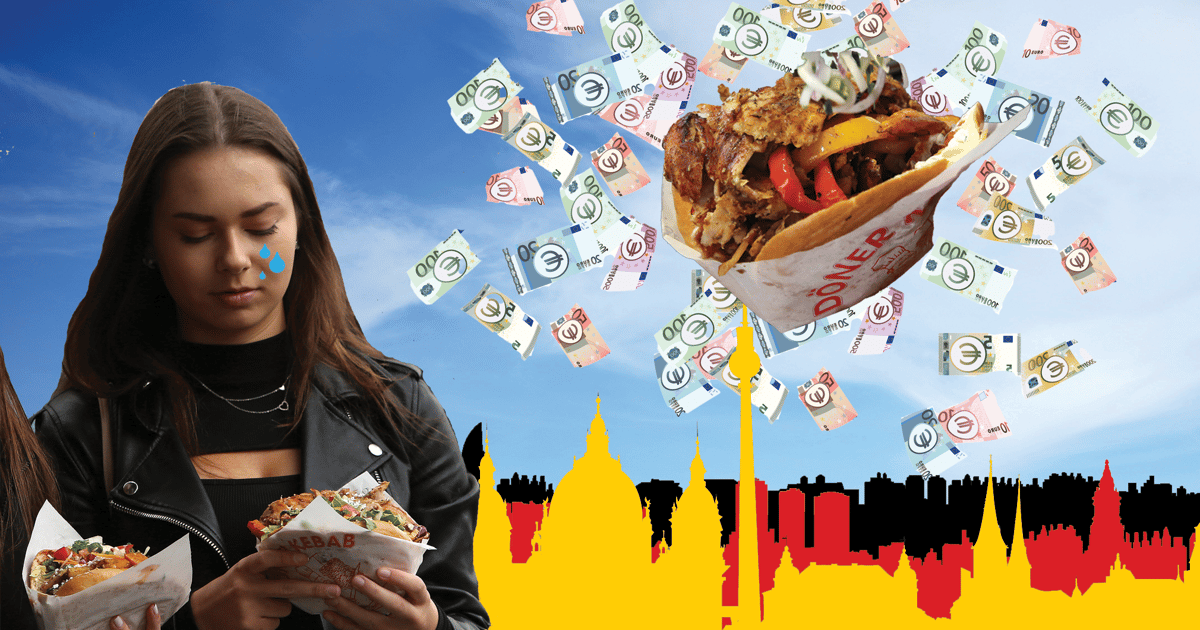“I can still remember when doner kebabs were sold for €3.50,” reminisced one teenager amid calls for a price brake to stop rising kebab costs.
The German capital is the birthplace of that ubiquitous European fast food, the doner kebab, and it shows.
Kebab shops line streets of many German cities, particularly in Berlin, and the scent of roasting, skewered meat is never far off.
Some two-million doner kebabs — meat wrapped in bread, topped with sauces and vegetables — are consumed a day in Germany, according to an industry association, quite a lot for a country of 83 million people. And the doner kebab has even supplanted the old stalwart, the currywurst — fried veal sausage topped with ketchup and curry powder — as the most popular fast-food dish in the country, according to a 2022 survey.



Kierkegaard:
Nietzsche later picked it up, himself using Angst as that’s basically the same word as Danish angst (shocking, I know). Danish also has frygt, German Furcht, English fright, which is immediate and not apprehensive. Reactive, not agentive. Fright is something that happens to you, dread is something you do. At least in theory people don’t always make a clear distinction, they’re blending into each other.
Do note how angst is translated as anxiety or dread, here, which is correct. In psychology English uses anxiety where German uses Angst, both existentialists were talking about psychology, which leaves us with the question on why English philosophers felt the need to import the Danish, or German, or whatever, word, when they had two perfectly fine words of their own.
I feel like “angst” has a competition of uncomfortableness. It’s maybe more specific than anxiety and not as oppressive. Like teenage angst, it’s temporary
Dutch has the same word: angst. In my experience it’s not as “heavy” as Angst in German, but rather interchangeable with “schrik hebben” or “bang zijn”. Though “angstig zijn” might be more of longer duration, like a character trait of a person.